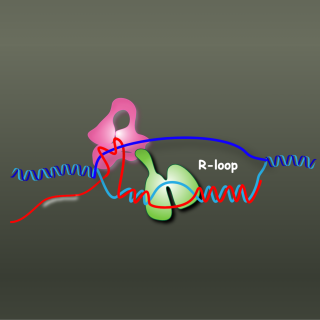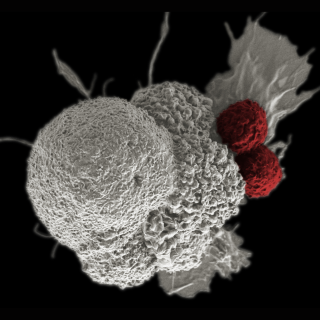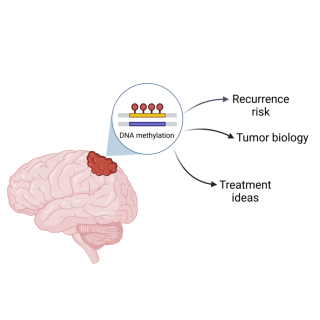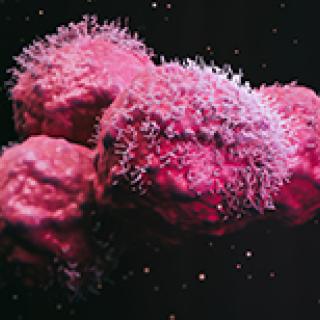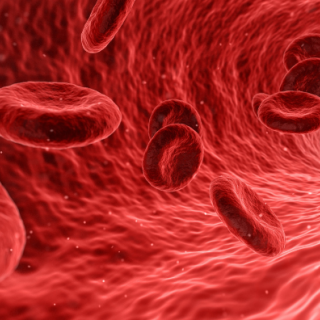Our Discoveries
Study finds that enzyme can disentangle strands of DNA and RNA
R-loops are three-stranded hybrid structures of DNA and RNA that play important regulatory functions in cells. Tangled R-loops can cause a number of issues in the genome and subsequently affect people’s health. CCR researchers have uncovered the mechanisms that the enzyme topoisomerase 3B uses to disentangle problematic R-loops.
Read MoreNew insights into the origins of an aggressive form of lymphoma
A new study sheds light on the origin of an aggressive subtype of diffuse large B cell lymphoma (DLBCL). The findings could help researchers develop more targeted therapies for this form of blood cancer.
Read MoreBacteria inside lung tumors concentrate within cancer cells
Researchers discovered that tumor-promoting signals are elevated in lung tumor cells with high concentrations of bacteria. These findings support the idea that reducing bacteria in the lungs might be beneficial for patients with lung cancer.
Read MoreImmune receptors recognizing mutations in p53 could guide immunotherapies for solid tumors
CCR scientists have assembled a library of immune receptors that direct T cells to target cells with mutations in p53, the most commonly mutated gene in human cancers.
Read MoreA protein predicts poor breast cancer survival for women of African descent
CCR and Columbia University researchers have discovered that large amounts of the gp78 protein in breast cancer tumors predict worse outcomes for patients of African ancestry. Their findings provide some new understanding of a significant health disparity in breast cancer.
Read MoreNew way to classify meningioma brain tumors suggests potential treatments
Two studies have found a new way to classify meningioma, a type of tumor that forms in the outer covering of the brain. Kenneth Aldape, M.D., Chief and Senior Investigator of the Laboratory of Pathology, speaks about how the new grouping system may help predict whether a patient’s tumor will grow back after treatment and may reveal new treatment possibilities.
Read MoreMachine learning reveals rules of T cell activation
CCR and McGill University scientists have used machine learning to build models that can predict T cell responses against tumors.
Read MoreComputational model finds signatures of T cell resilience in solid tumors
Evaluating T cell resilience can help researchers predict — and possibly improve — immunotherapy outcomes.
Read MoreProtein signature in the blood linked to prostate cancer lethality in men of African ancestry
African American men have an increased risk for lethal prostate cancer. CCR researchers have found that an immunity-related protein signature in the blood is more prevalent in men of African ancestry, which may help explain this devastating health disparity.
Read MoreUnique gene expression profiles identify rare T cells that could be effective in cancer immunotherapy
CCR researchers led by Steven A. Rosenberg, M.D., Ph.D., Chief of the Surgery Branch, have found unique expression profiles in 50 genes that help identify rare anti-tumor lymphocytes that can be used as personalized immunotherapy in many patients with metastatic solid tumors.
Read More